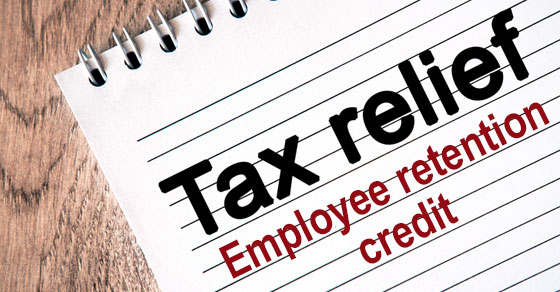The IRS has issued guidance providing relief from failure to make employment tax deposits for employers that are entitled to the refundable tax credits provided under two laws passed in response to the coronavirus (COVID-19) pandemic. The two laws are the Families First Coronavirus Response Act, which was signed on March 18, 2020, and the Coronavirus Aid, Relief, and Economic Security Act (CARES) Act, which was signed on March 27, 2020.
Employment tax penalty basics
The tax code imposes a penalty for any failure to deposit amounts as required on the date prescribed, unless such failure is due to reasonable cause rather than willful neglect.
An employer’s failure to deposit certain federal employment taxes, including deposits of withheld income taxes and taxes under the Federal Insurance Contributions Act (FICA) is generally subject to a penalty.
COVID-19 relief credits
Employers paying qualified sick leave wages and qualified family leave wages required by the Families First Act, as well as qualified health plan expenses allocable to qualified leave wages, are eligible for refundable tax credits under the Families First Act.
Specifically, provisions of the Families First Act provide a refundable tax credit against an employer’s share of the Social Security portion of FICA tax for each calendar quarter, in an amount equal to 100% of qualified leave wages paid by the employer (plus qualified health plan expenses with respect to that calendar quarter).
Additionally, under the CARES Act, certain employers are also allowed a refundable tax credit under the CARES Act of up to 50% of the qualified wages, including allocable qualified health expenses if they are experiencing:
- A full or partial business suspension due to orders from governmental authorities due to COVID-19, or
- A specified decline in business.
This credit is limited to $10,000 per employee over all calendar quarters combined.
An employer paying qualified leave wages or qualified retention wages can seek an advance payment of the related tax credits by filing Form 7200, Advance Payment of Employer Credits Due to COVID-19.
Available relief
The Families First Act and the CARES Act waive the penalty for failure to deposit the employer share of Social Security tax in anticipation of the allowance of the refundable tax credits allowed under the two laws.
IRS Notice 2020-22 provides that an employer won’t be subject to a penalty for failing to deposit employment taxes related to qualified leave wages or qualified retention wages in a calendar quarter if certain requirements are met. Contact us for more information about whether you can take advantage of this relief.
More breaking news
Be aware the IRS also just extended more federal tax deadlines. The extension, detailed in Notice 2020-23, involves a variety of tax form filings and payment obligations due between April 1 and July 15. It includes estimated tax payments due June 15 and the deadline to claim refunds from 2016. The extended deadlines cover individuals, estates, corporations and others. In addition, the guidance suspends associated interest, additions to tax, and penalties for late filing or late payments until July 15, 2020. Previously, the IRS postponed the due dates for certain federal income tax payments. The new guidance expands on the filing and payment relief. Contact us if you have questions.





